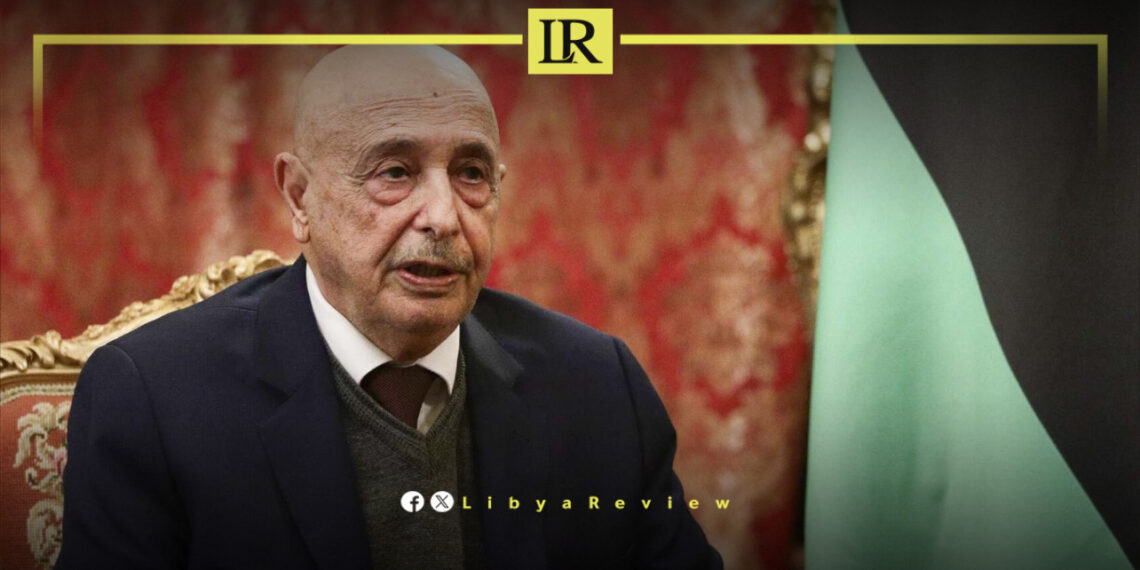Amid the complex and fraught political landscape in Libya, the role of the United Nations mission remains pivotal in calming conflicts and supporting the desired political pathway to achieve lasting stability in the country. Recently, the UN Security Council decided to extend the mandate of the UN mission in Libya for an additional three months, a decision warmly received by the Speaker of the Libyan House of Representatives, Ageela Saleh. Saleh views the extension as a clear message from the international community in support of the Libyan people’s desire to establish a political system based on national sovereignty and the selection of their representatives.
Key Details of the Security Council’s Decision: The Security Council unanimously agreed to extend the UN mission’s mandate until January 31, 2025, with the possibility of an automatic extension until the end of October of the same year, provided a new envoy is appointed by the end of January 2025. This requirement aims to ensure greater stability in the mission’s role by guaranteeing new leadership capable of managing the escalating challenges on the Libyan scene, which requires sustained efforts and concrete actions from both the mission and the international community.
The decision goes beyond merely extending the mission’s duration; it sets forth a clear vision for international support for Libya. The reaffirmation of the roadmap agreed upon at the Geneva forum and adherence to the legitimacy of the Libyan Political Agreement reflect the Security Council’s view on the necessity of establishing mechanisms to ensure a peaceful transition of power and simultaneous electoral processes. This support is a direct expression of the international community’s commitment to providing a clear roadmap for Libya, paving the way for presidential and parliamentary elections that reflect the Libyan people’s choices, restoring public confidence and ensuring respect for their desire to determine their own future.
International Sanctions Threaten Stability Threateners in Libya: The resolution includes a provision for imposing sanctions on individuals or entities attempting to destabilize security in Libya, a firm step indicating no tolerance for any efforts to obstruct the peaceful path. The resolution also calls for strict sanctions against parties that incite violence or expand the scope of armed conflict, reinforcing the importance of international support for Libya’s stability.
Appointment of a New Envoy and the Importance of Institutional Stability: The resolution mandates the appointment of a new envoy for the UN mission by January 31, 2025, reflecting the United Nations’ desire to maintain institutional stability within the mission, especially given the complex developments in the Libyan crisis. As various local and international factions attempt to secure their positions within the Libyan scene, the selection of a new, competent, and experienced envoy has become essential to ensure clear leadership capable of directing conflicting parties towards a political solution and unifying efforts to establish peace.
Libyan Reactions to the UN Extension: Speaker Ageela Saleh welcomed the decision, viewing the extension of the mission’s mandate as an affirmation of the international community’s commitment to supporting the Libyan people in their pursuit of stability. Saleh believes that this extension is an additional step towards fulfilling the Libyan people’s aspirations to establish a democratic civil state that renounces violence, is based on the rule of law, and upholds the principle of state sovereignty.
While Saleh’s statements are filled with optimism about the role of the UN mission, other voices within Libya vary, with some considering that the extension requires additional guarantees to be effective, especially given the challenges the mission faces in implementing its resolutions. This calls for greater efforts to coordinate with the effective parties on the ground to ensure the peaceful process proceeds without obstacles.


